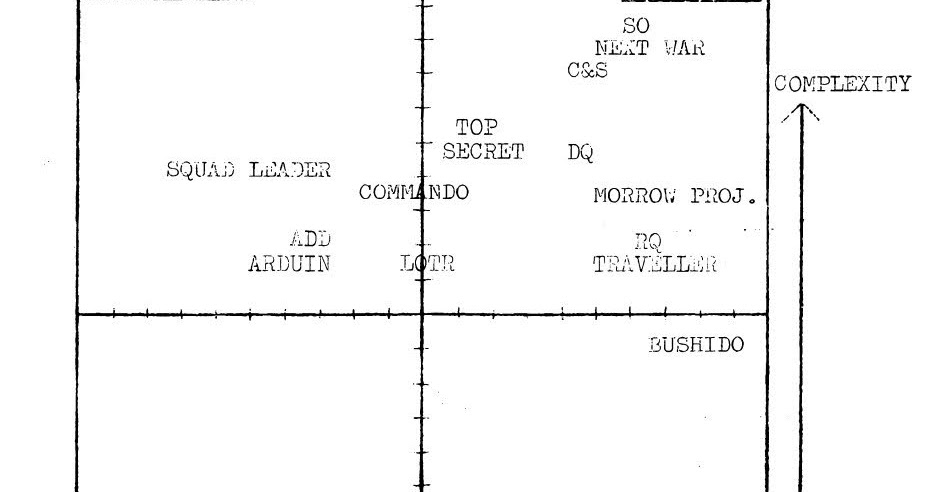A bit over a year ago I ran an Alien-inspired Classic Traveller session.
Keeping in mind the points
@Campbell and
@Neonchameleon have made about both technical elements of system, and more fundamental/underlying processes of play, I want to try and itemise some of what was needed to make this work:
* Classic Traveller is a sci-fi game, in the sense that space, starships, astronauts, skills for dealing with technology, etc are all part of it by default.
* Classic Traveller is quite non-Star Wars in its fiction - the main weapons are firearms, the most common armour is ballistic cloth, etc, ships can travel FTL but can't cross the galaxy in hours or days, and not even in a single longer voyage. This means that the system, played in accordance with the spirit and genre that it presents, won't generate action declarations from the players that are radically out-of-context for Alien.
* Classic Traveller easily generates PCs whose main field of expertise is not fighting, and indeed who are not very impressive physically at all. And this isn't just about "fluff" descriptions - it feeds into the resolution framework. It is not hard to generate a Traveller PC who will fall down unconscious or even dead if shot; who is no match for a leopard in hand-to-hand fighting; etc. This is important for Alien because it means that there are some PCs whose players will recognise that they are no match, in combat, for the Alien. So they will have to run or call for help or something similar.
* Classic Traveller has fully integrated animal generation rules, which make it easy to mechanically stat up the Alien and put it into mechanical as well as fictional motion in the game.
* Classic Traveller gives the referee a lot of authority to establish the initial fiction. In the context of this particular scenario, it is easy for me as referee to decide that the abandoned ship the PCs are investigating has Aliens on board. It's also easy for me to introduce elements of the framing that give clues and establish the "feel" of the possibility of some sort of "unexpected" threat.
* Classic Traveller has pretty good rules for determining encounter surprise and encounter range which mean that, once I decide that the PCs encounter an alien on the ship, things move out of the realm of GM fiat and into the realm of mechanics. This allows PC expertise to factor in (eg one player had his PC spend money to train in Tactics, which gives her a benefit to avoid surprise), and generally reduces the sense of GM-choosing-to-hose-the-players.
* Classic Traveller has player-side morale rules, which would help establish some feel, but on this occasion I forgot to use them! It didn't matter because we had fleeing PCs due to rational player choice without the need for any help from the dice!
Here's one thing which I think is crucial to Alien but doesn't really have a system element in Classic Traveller to support it:
the PCs split up.
This was an important part of the scenario I GMed, but it wasn't generated via application of the rules. (Contrast, say, MHRP/Cortex+ Heroic or Apocalypse World/Dungeon World, which allow splitting or joining the party as clearly-identified GM moves.)
Rather, the party being split up was an emergent consequence of equipment rationing (there were only so many vacc suits in the PCs' vessel's ship's locker) and then player decision-making about who was good at what and hence should perform what task in exploring the abandoned ship. I had established a "clock" - an approaching Imperial naval cutter also seeking to interdict the abandoned ship - which generated a bit of in-fiction pressure for the players to move quickly rather than languidly, but that also did not have an in-system manifestation (like eg a AW clock) beyond me vaguely calling the passing of ingame time.
Given the lack of mechanical support for this, in a group that was far more determined to "never split the party" I think there may not have been so much of an Alien feel to the scenario. Though maybe under those hypothetical circumstances I would have remembered to use the morale rules which might have forced a party split at some key moments.
5e D&D doesn't have any way I know of to force a splitting of the party - not even morale rules, I think - and is missing a number of my asterisked features (eg all D&D PCs are, by default, combat capable; it doesn't have space-y elements by default; and as a FRPG it tends towards the Star Wars-y end of the gritty-to-gonzo spectrum). So I'm really not persuaded that it can do an Alien-like scenario.

 playingattheworld.blogspot.com
playingattheworld.blogspot.com





